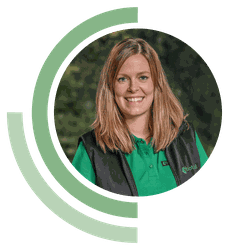Biosolids is part of a natural cycle by returning nutrients to nature – where they once came from. Sludge is a fraction formed by water treatment in sewage treatment plants. After digestion and dewatering, sludge can be an excellent product to use as fertiliser and soil improver.
By using quality-assured sludge as a nutrient, the cycle is closed and we can reduce the use of finite resources in Swedish plant cultivation. A gain for both purification plants, farmers and the environment.
Biototal works for the development of various solutions and systems for safe and sustainable recycling of good quality biosolids.
Biosolids of a good quality gives the soil mainly phosphorus and soil substances, but also other important nutrients and calcareous effects. The normal phosphorus content is 7-10 kg per tonne of biosolids.
Examples of nutrient content for a five-year biosolids hectare yield
15 tonnes/ha
TS content 27%
total nitrogen 200 kg/ha
ammonium nitrogen 50 kg/ha
phosphorus 110 kg/ha
potassium 10 kg/ha
sulphur 40 kg/ha
Much of the biosolids we convey is Revaq-certified. The certification means that the sludge meets even more stringent traceability and content requirements. Certified sewage treatment plants undertake to continuously monitor and improve the quality of the incoming waste water and hence biosolids.
All biosolids is analysed to meet the requirements for spreading on arable land.
Biosolids can be spread both spring and autumn and spread with conventional fertiliser spreaders. The yield is usually between 10-15 tonnes per hectare for a five-year yield.
The biosolids is delivered either in connection with the spreading or to a farm warehouse where the Biosolids is placed in the field where it is to be spread. After delivery, the biosolids mound is stacked up and covered with plastic. Storage can also be carried out on a free fertiliser sheet or similar surface made hard.
We also take soil samples and manage contacts with the municipal environmental office. We leave it to the farmer to organise the spreading, but can give tips on good spreader contractors nearby.
We always make value-added calculations to our customers. In the calculation we look at the most important parameters, such as nutrient content and estimated phosphorus utilisation. This is so that you can optimise the use and utilisation of the nutrients contained in the sludge. Through our value-added calculation, you as a farmer can be confident that you are doing a good deal.
If you want to spread natural fertilisers on your arable land, please contact our experts!

Business area manager Renewable Nutrients
0732-01 01 27